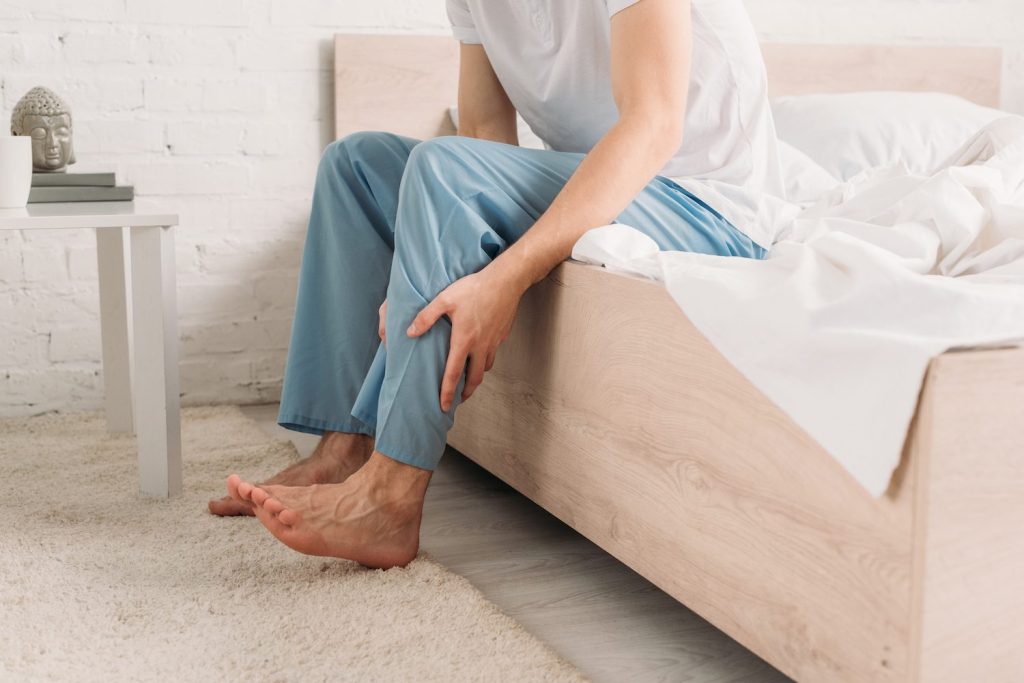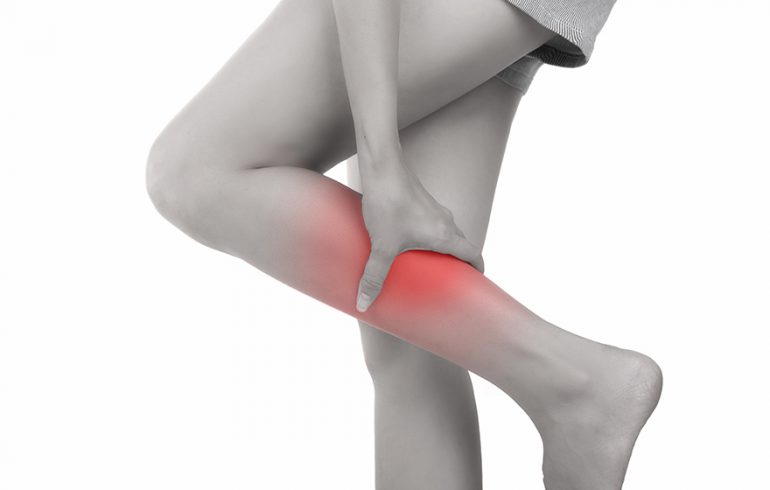Nighttime leg cramps are a painful and uncomfortable experience that can disrupt sleep. While they are not typically dangerous to health, they can cause significant distress. Unlike restless leg syndrome, which involves an urge to move the legs without pain, nighttime leg cramps cause sudden, intense pain that immobilizes the legs and may last anywhere from a few seconds to a couple of minutes.

What Causes Leg Cramps At Night
Causes of Nighttime Leg Cramps
The exact causes of nighttime leg cramps are not fully understood, but several factors may contribute:
- Nutrient Deficiencies: Low levels of key minerals such as magnesium, potassium, and calcium may contribute to muscle cramps.
- Dehydration: Lack of proper hydration can affect muscle function, making cramps more likely.
Sedentary Lifestyle: Prolonged periods of sitting or standing can lead to poor circulation and increase the likelihood of cramps. - Aging: Older adults tend to experience leg cramps more frequently, likely due to changes in muscle function and circulation.

Effective Relief Strategies
There are several ways to relieve and prevent nighttime leg cramps:
1. Stay Active
Regular physical activity is essential for reducing the frequency of leg cramps. Even light exercises, such as walking or gentle stretches, can improve circulation and muscle function, reducing the chances of cramps occurring.
2. Stretching for Immediate Relief
If you wake up with a cramp, try gently stretching the affected muscle. For calf cramps, pull your toes towards your shin to stretch the calf muscles. This can help alleviate pain and relax the muscle faster.
3. Hydration
Staying hydrated is crucial for overall muscle health. Dehydration can lead to muscle cramps, so make sure to drink water consistently throughout the day. Pay extra attention to hydration during hot weather or after exercise.
4. Massage and Acupuncture
Massage therapy can help relax tight muscles and improve blood flow, reducing the frequency of cramps. Acupuncture has also been shown to release endorphins, which can provide pain relief.
5. Epsom Salt Baths
Epsom salt, which is rich in magnesium, can help relax muscles and prevent cramps. You can take a warm bath with Epsom salt, or for quicker relief, massage the affected area with Epsom salt to improve circulation and ease muscle tension.
6. Increase Magnesium Intake
Magnesium plays a key role in muscle relaxation. To boost magnesium levels, include magnesium-rich foods in your diet, such as nuts, seeds, avocados, and leafy greens. Some people also use magnesium oil for topical application, which can help relax muscles.
While nighttime leg cramps are common and often harmless, they can be very uncomfortable. The strategies listed above can help alleviate the pain and reduce the frequency of cramps. However, if cramps are persistent, severe, or interfering with daily life, it’s important to consult a healthcare provider to rule out any underlying conditions. Staying active, maintaining hydration, and managing nutrient intake, especially magnesium, are practical steps that can help improve leg health and reduce cramps effectively.
